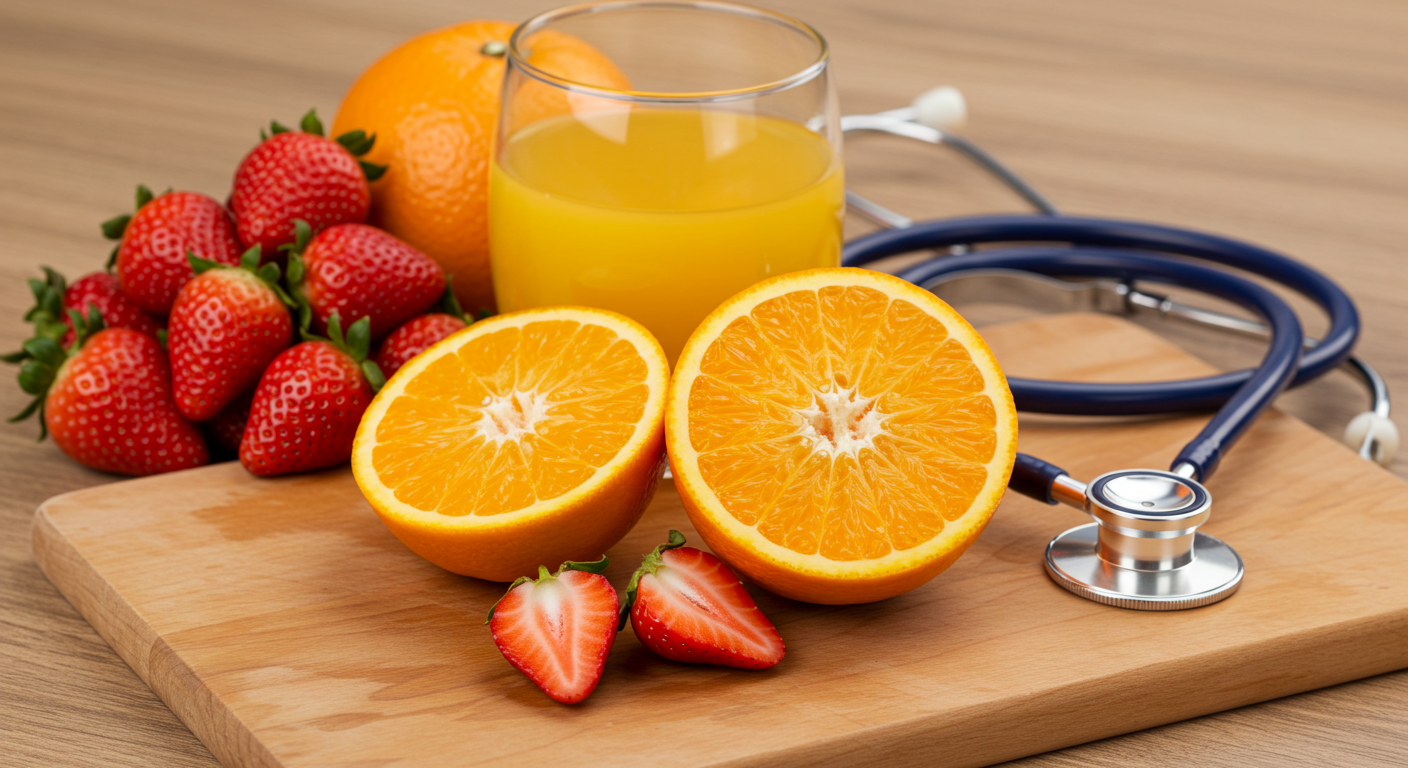Dr. Kumar’s Take:
This comprehensive review highlights that vitamin C is essential for human health because we cannot make it ourselves. The best approach is to get vitamin C from a balanced diet and thoughful supplementation during times of stress. People who eat plenty of fruits and vegetables will get enough vitamin C from food, but certain groups—like smokers or those with poor diets—should pay extra attention to their intake.
Key Takeaways:
✔ Humans and some animals cannot make vitamin C and must get it from food.
✔ Vitamin C supports collagen formation, immune defense, and acts as an antioxidant.
✔ Most people get enough if they are not stressed or sick, but smokers and those with poor diets may be at risk.
Actionable Tip:
Eat a variety of fruits and vegetables daily, such as oranges, strawberries, peppers, and broccoli, to meet your vitamin C needs naturally.
Understanding Vitamin C and Its Role in Health
Vitamin C, also called ascorbic acid, is vital because humans lost the gene to make it. It acts as an electron donor and supports at least 15 key enzymes. Vitamin C is needed for making collagen (important for skin, blood vessels, and bones), helps produce hormones, and fights free radical damage.
What Happens With Too Little or Too Much Vitamin C?
Not getting enough vitamin C causes scurvy, with symptoms like fatigue, bleeding gums, easy bruising, and poor wound healing. While scurvy is rare today, it can still occur in people with extremely poor diets.
The body needs only a certain amount each day. Extra vitamin C from supplements is filtered out by the kidneys and does not boost health further. Large doses may sometimes cause stomach upset but are otherwise not helpful.
Study Design
This review brought together many studies on how vitamin C is absorbed, transported, and used in the body. It looked at genetic factors, special transport systems (SVCT1 and SVCT2), and how conditions like smoking or diabetes may change vitamin C needs.
Results and Insights
- Humans must get vitamin C from their diet, as we cannot make it.
- Scurvy develops when body stores drop below about 300 mg and blood levels go under 10 micromoles per liter.
- Vitamin C is essential for enzyme function, antioxidant defense, and healthy tissues.
- Blood vitamin C levels depend mainly on diet, but also on genetics and health status.
- About 8% of men and 6% of women in the US have low enough vitamin C to be concerning, especially smokers.
How the Body Absorbs and Uses Vitamin C
Vitamin C is absorbed in the small intestine using SVCT1 and SVCT2 transporters. It is distributed through the blood and stored in different tissues, where it supports many functions. The body keeps a higher concentration in tissues than in blood. If intake is low, the body protects critical organs first.
Related Studies and Research
Vitamin C and the Common Cold: Leucocyte Ascorbic Acid Study – Classic research showing the relevance of vitamin C to immune cell function and cold risk.
Vitamin C Deficiency: Clinical Signs, Risk Factors, and Treatment – Outlines deficiency syndromes, at-risk groups, and interventions.
Vitamin C Dosing, Plasma Saturation, and Urinary Loss – Delves into the body’s mechanisms for handling excess and maintaining homeostasis.
Plasma and Leucocyte Vitamin C Relationship: Insights from BMJ 1971 – Details the scientific relationship between plasma and tissue vitamin C pools.
Frequently Asked Questions
What foods are high in vitamin C?
Fruits like oranges, strawberries, kiwi, and vegetables like bell peppers, broccoli, and Brussels sprouts.
Can you get too much vitamin C?
Too much from supplements may cause digestive issues, but serious problems are rare since the body gets rid of extra.
Who is at risk for vitamin C deficiency?
People with poor diets, smokers, those with certain illnesses, or with some genetic differences.
Does vitamin C prevent colds?
It may slightly shorten the length or reduce severity, and it may prevent colds in people who are stressed.
Conclusion
Vitamin C is crucial for health, supporting collagen, enzyme function, and immune defense. Because we cannot make it, eating fruits and vegetables and smart supplementation is key.


